Announcing Volunteer and Learn for Habitat Homebuyers and Homeowners
Habitat for Humanity International was founded in 1976 on the concept of “partnership housing,” where those in need of shelter worked side-by-side...
3 min read
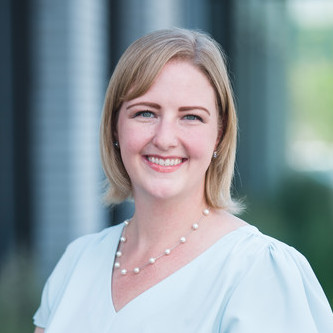 Regina Eckes
:
11:53 AM on February 20, 2025
Regina Eckes
:
11:53 AM on February 20, 2025
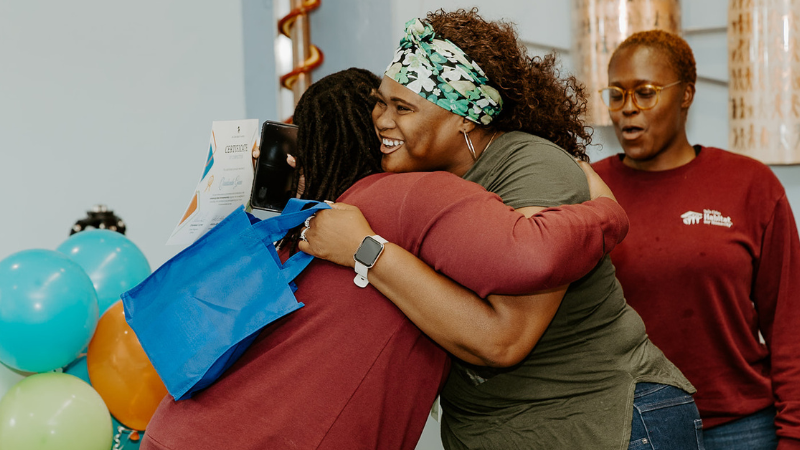
Several years before adopting our new Strategic Plan: Build Forward Together, Twin Cities Habitat began seeking creative solutions to bridge the racial homeownership gap. To deepen our understanding and make meaningful changes, we partnered with Dr. Brittany Lewis and her firm Research in Action. With their expertise, we engaged an advisory committee that included current and previous Foundational Black Homeowners who participated in our programs. Together, we learned about their experiences and challenges, and were able to uncover opportunities for growth.
Through surveys, listening sessions, and data walks, Research in Action gathered invaluable community feedback that helped shape Twin Cities Habitat's successful Advancing Black Homeownership Program. One major theme that emerged was a frustration among participants regarding Habitat’s understanding of who it serves. Many of the program’s participants are single Black women who head their households, and they felt that Habitat did not fully grasp the systemic barriers they faced. These included overlapping systems of oppression, financial disenfranchisement, and the specific resources they needed from Habitat.
“This is the most that we’ve seen Foundational Black Homebuyers in our program since I’ve been here,” said Shereese Turner, Twin Cities Habitat’s Chief Program Officer. “The changes we’ve made and the policies we’ve revisited are contributing to more individuals gaining access to and successfully completing the program.”
With the support of Research in Action, we have seen dramatic improvements in our homeownership and financial coaching programs via the Advancing Black Homeownership Program. Their 2024 Impact Report highlights the progress. At the start of the project, white participants had a closing conversion rate double that of Foundational Black Households (16% vs. 8%). Due to the implementation of Research in Action’s recommendations, we have nearly closed the gap, with conversion rates now at 23% for white households and 22% for Foundational Black Households. This improvement reflects a crucial step toward equity in homeownership access and success.

A significant reason our Advancing Black Homeownership Program is thriving is that we actively listen to our community members. One of the key recommendations from our collaboration with Research in Action was to “implement a participant-centered approach and cohort model to increase collaboration.” Many of our Foundational Black Household clients previously felt unseen and unheard by our coaching staff. They believed the program failed to recognize the unique challenges they faced.
In response, we launched a cohort coaching model in 2023 that prioritizes the needs of Foundational Black Households. This model incorporates culturally relevant peer-to-peer coaching and fosters community connections. The curriculum includes components focused on healing from financial trauma and developing financial resilience.
Research in Action also urged us to “collaboratively redesign eligibility requirements and delivery methods”—a recommendation we embraced. The changes that followed have led to significant improvements. A current program participant highlighted the power of the cohort model notes:

“Being in the room with all the other people provided encouragement. Even the people that were there with me—I felt like they all were going to become homeowners. While you’re in the six-week training, you feel like Superman or Superwoman. Like, you can do it. I would definitely recommend it.”
Twin Cities Habitat is also committed to implementing changes that directly address participants’ needs in real-time. For example, securing childcare was a significant barrier to participation. In response, we obtained funding to provide childcare vouchers, ensuring more parents could attend coursework without added stress. Research in Action emphasizes that this sense of agency and community support has been transformative for participants.
Additionally, we received feedback that the 350-hour volunteer requirement, called sweat equity, was an obstacle for many families trying to become homebuyer-ready. In response, we replaced the sweat equity requirement with a new educational and community-building program called Volunteer and Learn. This change allows participants to engage in meaningful learning experiences while maintaining flexibility in their schedules.
One successful program participant shared, “I think it’s a great resource, especially for Foundational Black Americans, because a majority of us don’t have the resources to be able to buy a home on our own. I didn’t think homeownership was in the cards for me.”
In May 2024, Twin Cities Habitat launched a new iteration of an advisory council to ensure program changes continue to align with community needs.
“There are other projects we’re working on, and we will use this group to keep us accountable,” Shereese said. “Are we off base? What should we do differently? That’s the group we turn to for another set of eyes or ears on a project.”
For Shereese, listening and taking action are the core shifts that have propelled our success. She emphasized that Twin Cities Habitat began this work by disaggregating its data to understand which Black applicants were not being served effectively. The results exposed performative marketing strategies that placed Foundational Black Homeowners at the forefront of the organization’s visuals when, in reality, they were not being served equitably.

“The reality is that you will learn what needs to be done if you just listen,” Shereese said. “People will tell you what their needs are. That’s exactly what we got from the advisory council. They told us what the challenges were. They also told us how we could eliminate barriers. They showed us the way forward.”
By centering participant voices and acting on recommendations of Research in Action, Twin Cities Habitat is advancing Black homeownership in ways that are both meaningful and lasting. We remain committed to continuing this work, ensuring that more families achieve the dream of homeownership while addressing systemic inequities in the process. Read the full 2024 Impact Report from Research in Action.

Your gift unlocks bright futures! Donate now to create, preserve, and promote affordable homeownership in the Twin Cities.
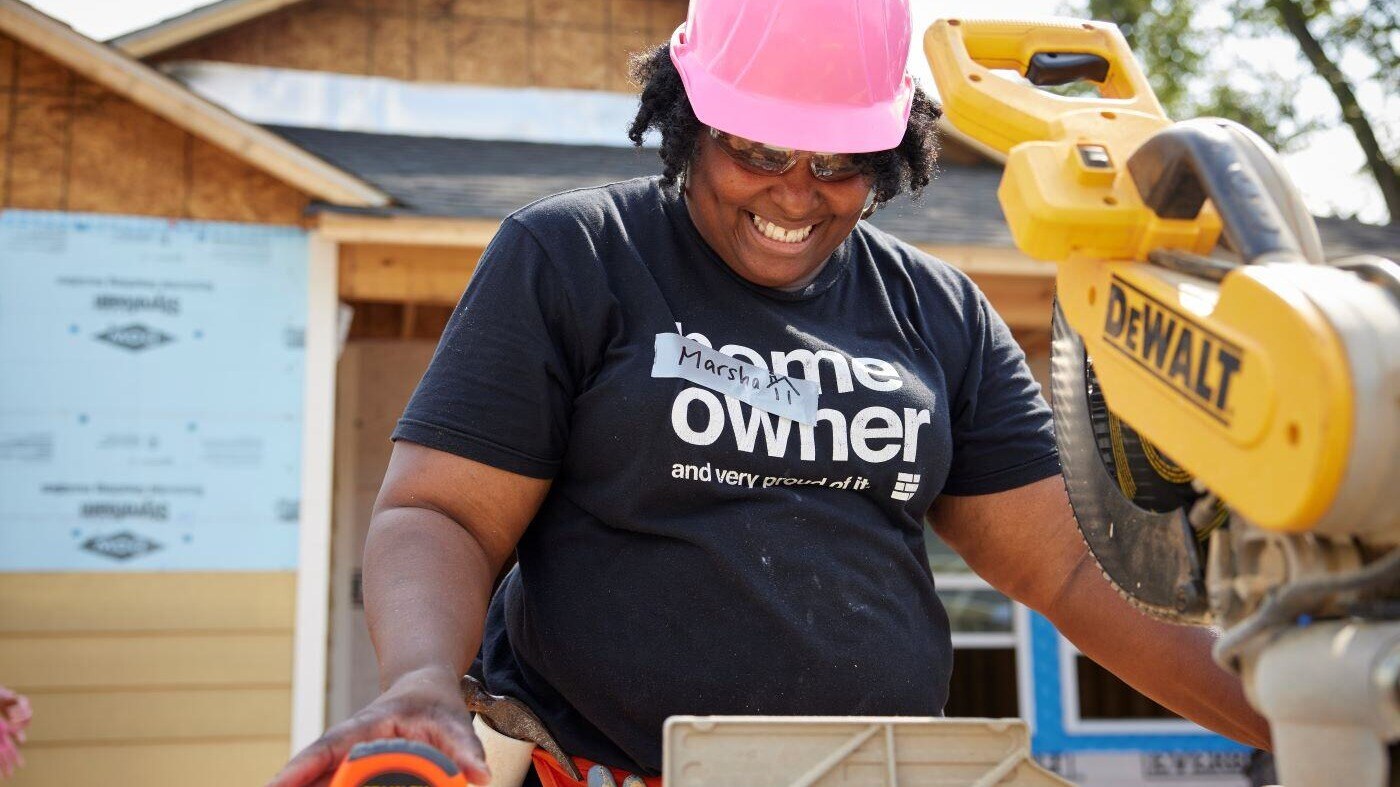
Habitat for Humanity International was founded in 1976 on the concept of “partnership housing,” where those in need of shelter worked side-by-side...
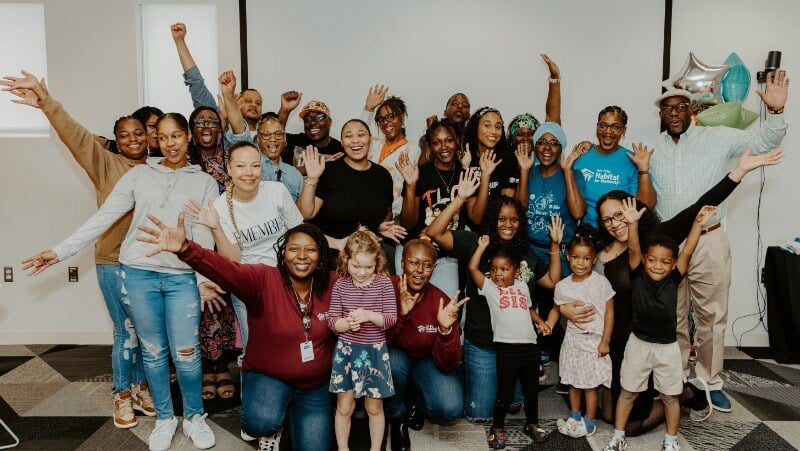
Bridgette was on cloud nine when she closed on her home in summer 2024. As a participant of Twin Cities Habitat’s Advancing Black Homeownership...
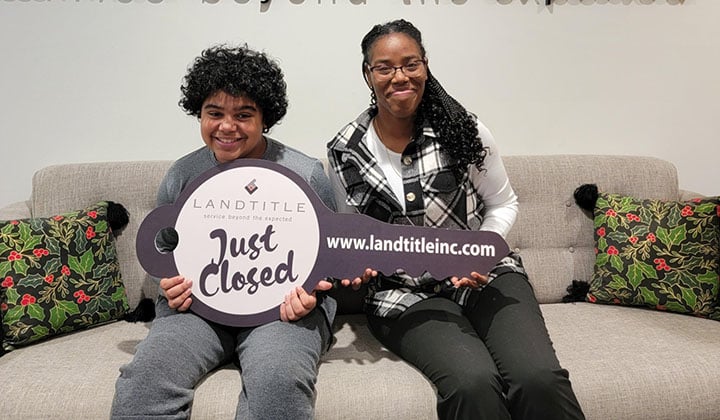
Twin Cities Habitat for Humanity is three months into a pilot program designed to advance Black homeownership across the Twin Cities seven-county...